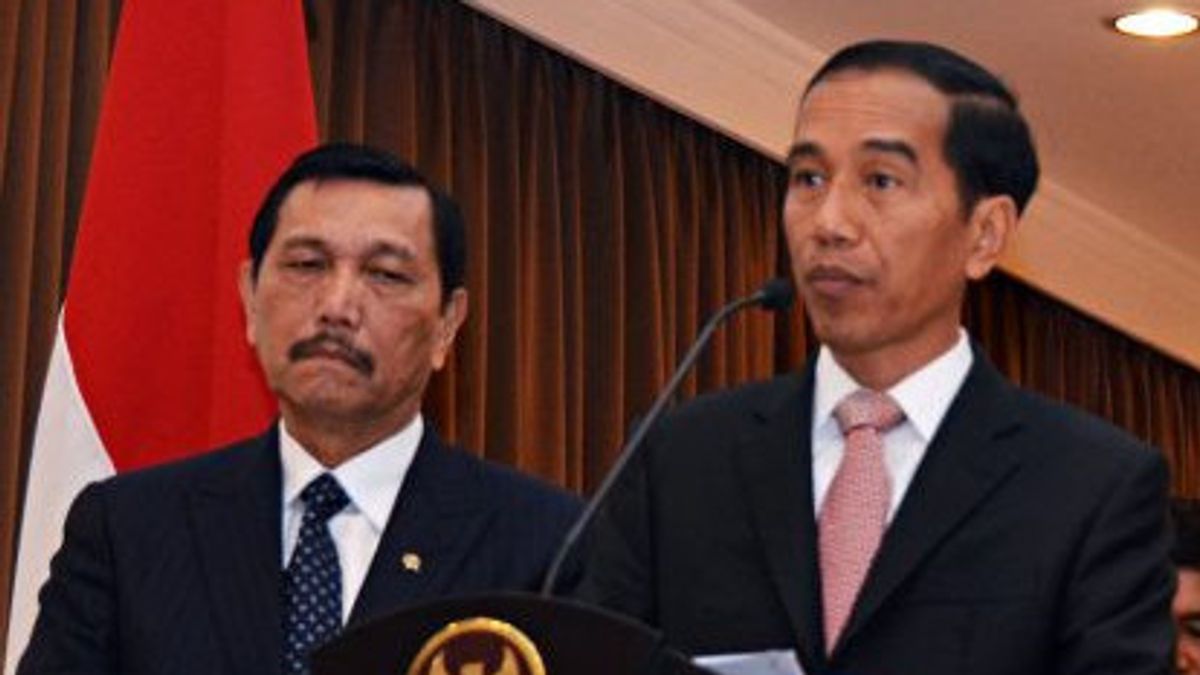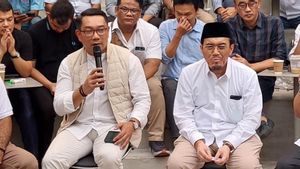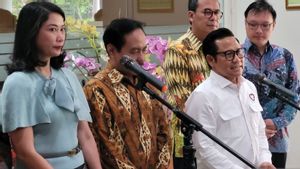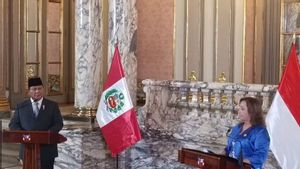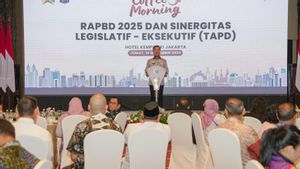JAKARTA - President Joko Widodo (Jokowi) rebuked the Coordinating Minister for Maritime Affairs and Investment (Menko Marves) Luhut Binsar Pandjaitan and the Head of the Coordinating and Investment Board (BKPM) Bahlil Lahadalia because investment in the third quarter of this year contracted by minus 6 percent.
In fact, Jokowi is targeting investment to grow below minus 5 percent in the third quarter. Jokowi also asked Luhut and Bahlil to increase the investment that entered Indonesia in the fourth quarter so that the growth would not be too negative.
Economic observer from the Institute for Development of Economics and Finance (Indef) Bhima Yudhistira said there were several steps that Luhut and Bahlil could take in attracting investment into Indonesia in the 6th quarter of this year. One of them is by focusing on attracting relocation.
According to Bhima, industrial relocation is a great opportunity, because this will continue to happen. However, said Bhima, the government must prepare incentives to attract investors to relocate their factories to Indonesia.
"Incentives must be sharpened. Because not all of the incentives are with a reduction in corporate income tax. So there are a lot of very specific incentives depending on the type of industry. This means it is necessary to ask potential investors what kind of incentives they need," he said, when contacted by VOI, Wednesday , 3 November.
Second, said Bhima, the massive industrial development in Batang, Kendal and Brebes must be encouraged and accelerated with adequate supporting infrastructure.
"So that it can also support investment in the manufacturing sector," he said.
Finally, the government needs to promote investment by involving embassies in the country of placement. This step can be taken to attract new potential investors.
"Embassies carry out promotions, by showing what Indonesia's superiority is, what kind of prospects and what facilities it provides. So that actually has to be done more massively," he explained.
According to Bhima, Indonesia remains attractive to investors for the long term. Although, currently the business world is experiencing economic pressure from the global recession. However, Indonesia has attractiveness for investors in terms of the long term, demographics, and potential natural resources (SDA).
Challenges that Will Be Faced by Indonesia in the Fourth QuarterBhima said that the government should not only be aware of the challenges that arise from the COVID-19 pandemic. However, there are several other challenges that may arise until the end of this year. The first is geopolitical uncertainty.
"This is now (currently) waiting for the policies of the president who will win the election in the United States. Because this still creates considerable uncertainty. What is the policy whether to reduce the escalation of the trade war, if Donald Trump is again (elected) like," he said.
Second, said Bhima, of course related to fluctuations in commodity prices. Especially mining and plantations. He said these two commodities were very important to pay attention to.
Not only that, the fundamental condition of the economy in Indonesia must also be considered. Bhima said, the government must ensure that the APBN deficit can be managed properly, as well as the current account deficit. Including, the threat of a financial deficit.
"So we have to prepare a triple deficit. So that investors are sure that the economic fundamentals in Indonesia are fine," he explained.
Finally, said Bhima, what the government must also pay attention to is the stability of national security and politics. This is because these two factors can affect investment in Indonesia.
"Politics and national security are related to the rejection of the Omnibus Law on Job Creation. Then the minimum wage does not increase. This has resulted in protests, especially from workers. This could also disrupt future investment prospects," he said.
The English, Chinese, Japanese, Arabic, and French versions are automatically generated by the AI. So there may still be inaccuracies in translating, please always see Indonesian as our main language. (system supported by DigitalSiber.id)
